Burning banners and confirming crits
Exploring combat in Burning Banners and thinking about confirming critical hits with additional dice rolls
Welcome to Skeleton Code Machine, an ENNIE-nominated and award-winning weekly publication that explores tabletop game mechanisms. Check out Public Domain Art and Fragile Games to get started. Subscribe to TUMULUS to get more design inspiration delivered to your door each quarter!
The last two weeks we were focused on what makes a dungeon crawl good and how to generate a dungeon map.
This week we are taking a look at a fantasy wargame called Burning Banners and how it uses critical hits during combat.
Burning Banners
I discovered Burning Banners (Moeller, 2024), a fantasy wargame for 2-6 players, by seeing photos of the map on social media. I instantly fell in love with the style of designer and artist Christopher Moeller.1
Somehow it is new, original art but also has a nostalgic and retro feel. It is simple without feeling amateurish. The color palette is muted, but doesn’t feel boring. I’m no art critic, so those with a larger art vocabulary might do a better job of describing this style.2
The world of the game also feels like it is straight out of the 1970s fantasy boom:
“In the five centuries since the Wound was closed, the kingdoms of Kalar have struggled to rebuild their shattered societies. A resurgent Empire spread across the great sea, bringing civilization to the untamed eastern continent of Kheros. But Lilith, one of the immortal sorcerers responsible for the Worldwound, arrived first, preparing the way for the return of her dark mistress. For nearly six hundred years she has plotted and schemed.”
The factions include The Oathborn (dwarven miners), Orcs, Goblins, The Army of the Night (vampires), The Eastern Empire, and Fjordland (vikings). Each with it’s own asymmetric powers and rules.
The game is way too big to cover everything in this article. The basic game is surprisingly simple, but the advanced rules fill the 60-page rulebook.
TDG provides a good video overview of Burning Banners, including both how to play and a short (positive) review at the end if you want to learn more.
Combat rolls
The combat system of Burning Banners is one of the things that stood out to me during my first play.3 It uses a version of opposed dice rolls common in many wargames — dice pools with number of successes:
Gather dice pools: Both sides gather their dice pools, made of white d6 dice and black d8 dice. Each army contributes a number of dice. For example a Fjordland army of Sea Reavers contributes 1d8 + 2d6 to the pool, while an Oathborn miner army only contributes 1d6. Stronger, more expensive armies contribute more dice.
Apply terrain modifiers: Some terrain will provide additional dice. When fighting in the mountains, the defender receives +1d6 to their pool. Rivers may also provide a defensive benefit.
Determine winner: Each side rolls their dice. Each roll of 5+ is a success and any other result is a failure.4 Rolls of 7+ are critical hits. The side with the most successes is the winner.
Hits equal to the difference of each side’s success are applied to the loser’s armies. If the attacker has 3 successes and the defender has 1 success, the defender would take 2 (3-1=2) hits. It usually only takes two hits to eliminate an army.
As a combat-focused wargame, this dice-based resolution method is quick and easy to use. The part I found particularly interesting was the critical hit mechanism.
Confirming critical hits
The idea of confirming critical hits (i.e. “crits”) was used in some versions of Dungeons & Dragons and Pathfinder. Burning Banners uses a similar mechanism in that critical hits are “confirmed” with additional dice rolls.5
Die results of 7+ during combat count as both a success and a critical hit. This can only happen, of course, on the black d8 dice and never on the white d6 dice. There is about a 25% chance of rolling at least a 7+ on a d8.
Each critical hit needs to be confirmed by rolling an additional d6 die. If that d6 die roll is a success (5+), then the critical hit is confirmed and the success is added to the total. In effect, confirmed critical hits are worth two (2) successes versus one (1).
Given that there is the original 25% chance of getting a critical hit on the original d8 and then a 33% chance of confirming it with the white die, that should be about an 8.33% chance of a confirmed critical. That is per black d8 rolled as part of the initial combat roll.
Rolling an extra die 25% of the time for black d8 dice doesn’t seem like too much of a burden. It’s fun to see 1 hit turn into 2 hits, so it doesn’t feel like anything is being taken away if it’s not confirmed.
Arguments for and against confirming crits
There are many ways to implement critical hit confirmation in board games and TTRPGs, so it’s hard to generalize. Some mechanisms might add an extra bonus (e.g. more damage, more hits, etc.) if the crit is confirmed. Other mechanisms might negate the crit altogether if it is not confirmed, leaving the player with nothing.
That said, the following arguments for and against crit confirmation seem to be fairly common:
Pros:
Adds suspense: There is some tension created between rolling the initial crit and the confirmation roll. This might be enjoyable and make each crit feel more important and meaningful.
Balances critical hits: If attacks crit every time a 20 is rolled (5%) but have a high chance to miss otherwise, combat can feel too “swingy” and random.
Allows for tactical modifiers: Depending on the system and rules, requiring crit confirmation rolls provides another chance to add in modifiers. These can be provided by equipment, skills, spells, or other thematic elements that increase the chance of confirming crits.
Cons:
Slows down gameplay: Confirming crits adds additional dice rolling which takes more time. It will add time to the game and slow down combat.
Ruins the excitement of critical hits: You roll a natural 20 and cheer, knowing that you got the critical hit you needed… only to find out a moment later that you didn’t actually get the critical hit because you rolled a 1 on the next roll. That can suck the fun out of an otherwise epic moment.
Adds complexity: Confirmation of crits requires additional rules and complexity vs. just counting all crits as automatically confirmed.
For me, I think context and game type really matter. Crit confirmation in Burning Banners seems quick and fun. But I can see how crit confirmation in a game like Dungeons & Dragons can feel unnecessary and disappointing.
Conclusion
Some things to think about:
Dice pools can be fun: I personally enjoy dice pool systems and chucking fistfuls of dice.6 In Burning Banners, it seems to be rather quick and not much of a math burden. Care should be taken to make sure it doesn’t slow down the game.
Confirming crits is divisive: If you check Reddit and various forums, you’ll see a lot of arguments for and against confirming crits in TTRPGs. There is, of course, no correct answer because it depends on the kinds of fun the players want have.
Be careful about loss aversion: Watch Geoff Engelstein’s GDC 2025 talk on the psychology of loss aversion. It’s one thing to not get an extra bonus (e.g. you get your original 1 hit, not an extra hit on top of that), but it’s a very different thing to roll a crit and have that “taken away” from you. Designers beware!
What do you think? Does the extra step of confirming crits add to the game or add unnecessary complexity? Do any of your favorite games require crit confirmation?
— E.P. 💀
P.S. Only a few Tumulus Founder packages left. Don’t wait to subscribe!
Skeleton Code Machine is a production of Exeunt Press. All previous posts are in the Archive on the web. Subscribe to TUMULUS to get more design inspiration. If you want to see what else is happening at Exeunt Press, check out the Exeunt Omnes newsletter.
According to his BGG profile: “He did the packaging art for the Axis & Allies miniatures game and has provided over 100 illustrations for Magic: the Gathering and the World of Warcraft trading card games.”
I’ve always enjoyed art, but making games has made me appreciate art in a way that I never did before. I’m watching Crash Course: Art History and The Art Assignment, both by curator Sarah Urist Green, this year. My hope is that I can grow both my love of art and my ability to describe what I’m seeing and feeling.
I used the basic rules and introductory scenario (“campaign” as they are called), and haven’t tried the advanced rules yet. The advanced rules add hero powers, cantrips, magic cards to combat. The resolution of dice rolls remains, however, the same in both basic and advanced.
Again, this is for the basic rules. Advanced rules may add +/-X modifiers to the rolls.
The concept of “exploding dice” is different. With exploding dice, if the highest value of a die is rolled, it is rolled again and the new value is added to the previous result. This can continue with a chain of explosions if the highest value is rolled again. Probably a good topic for a future SCM article.
See also: Zombiedemic - War of the War

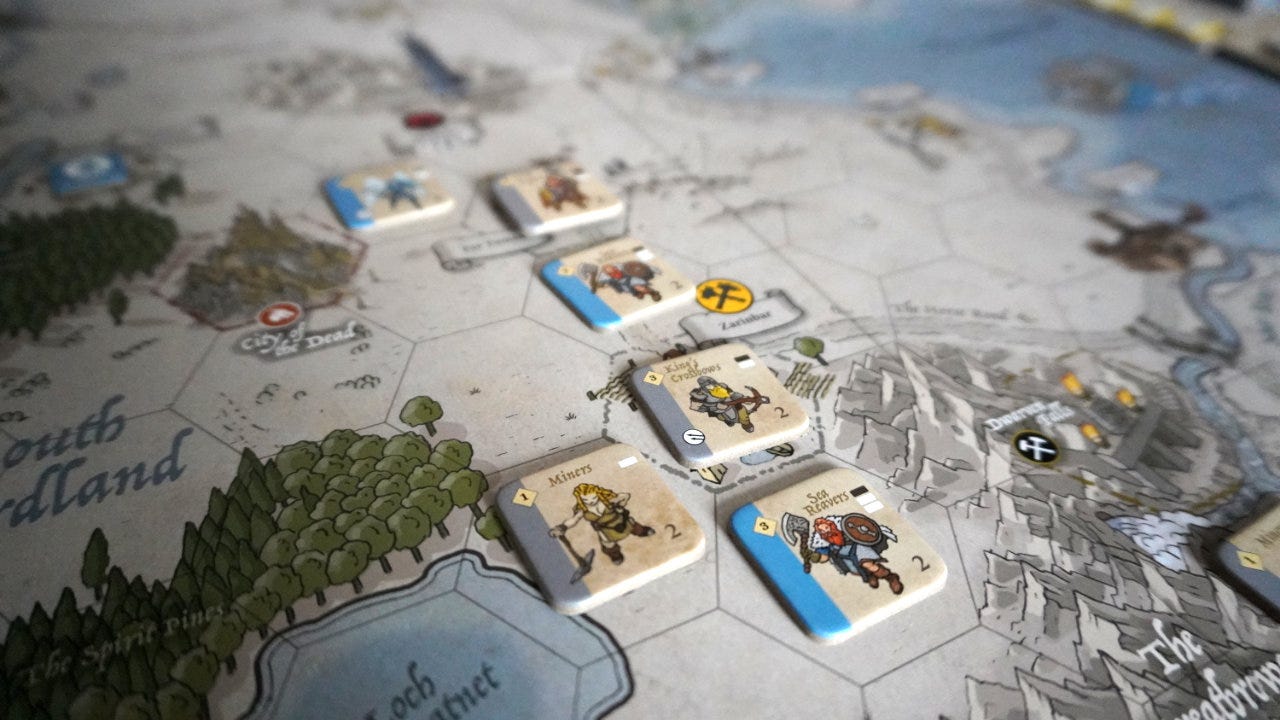
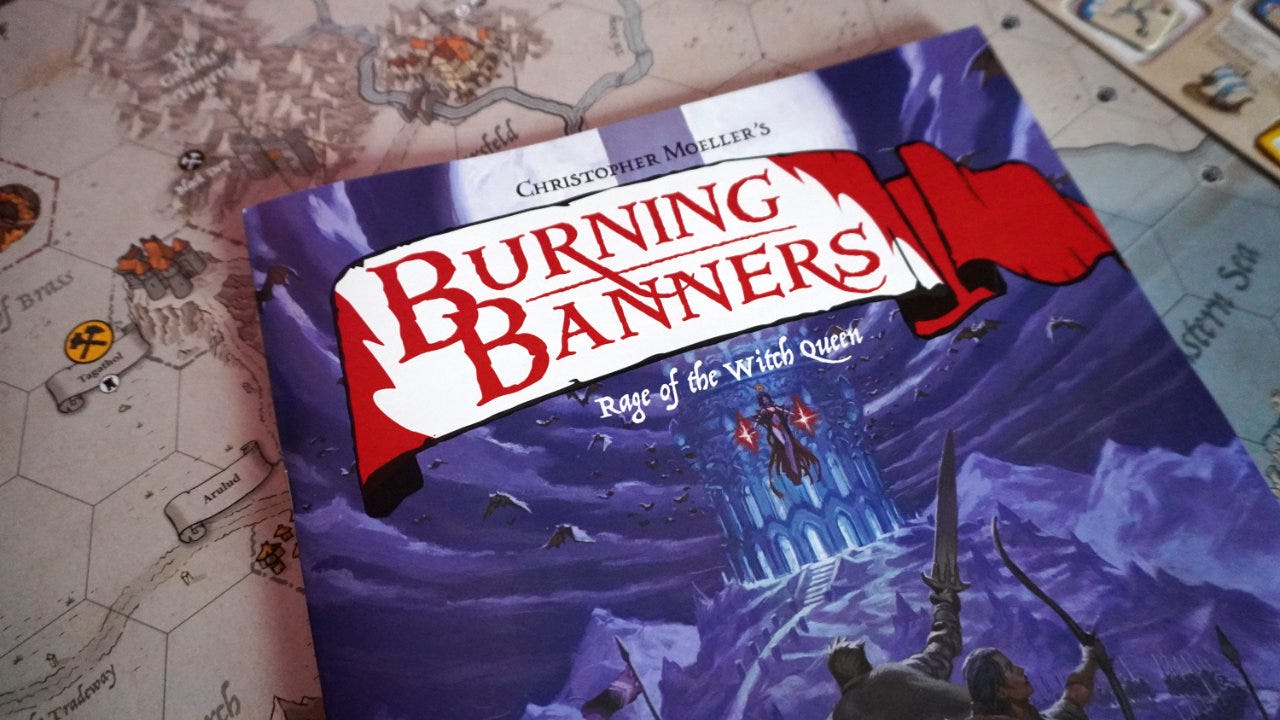
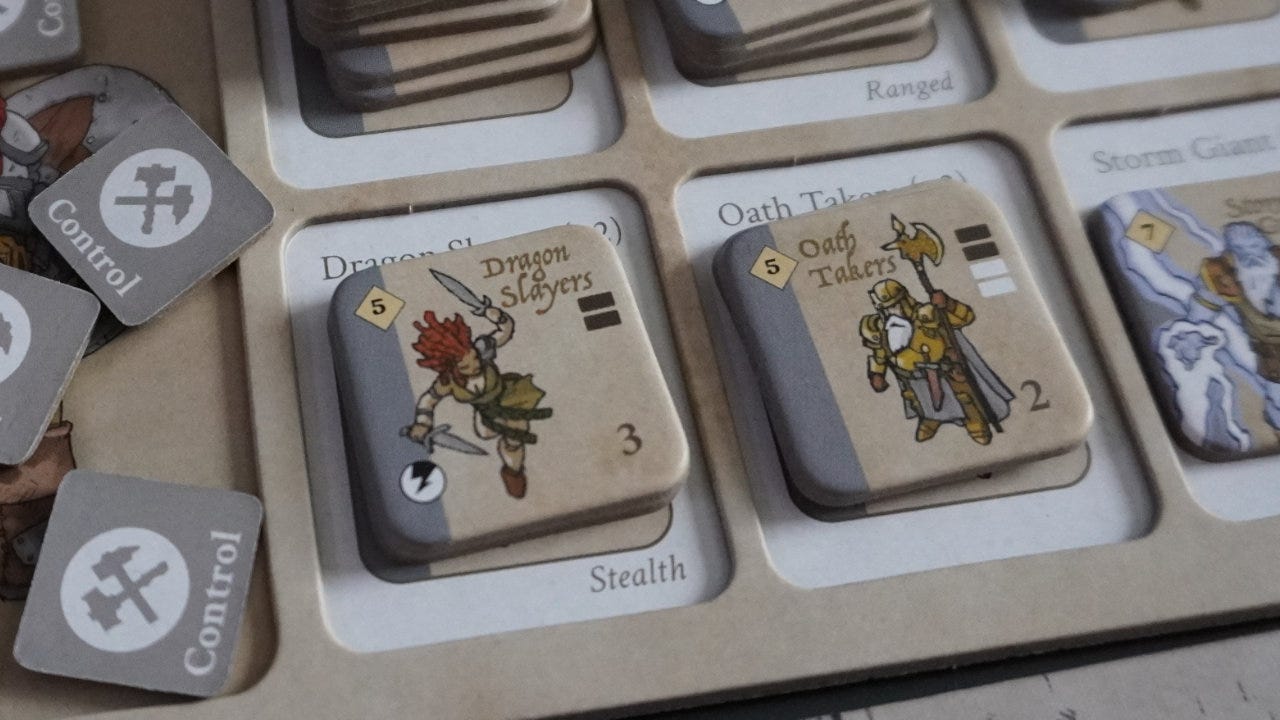

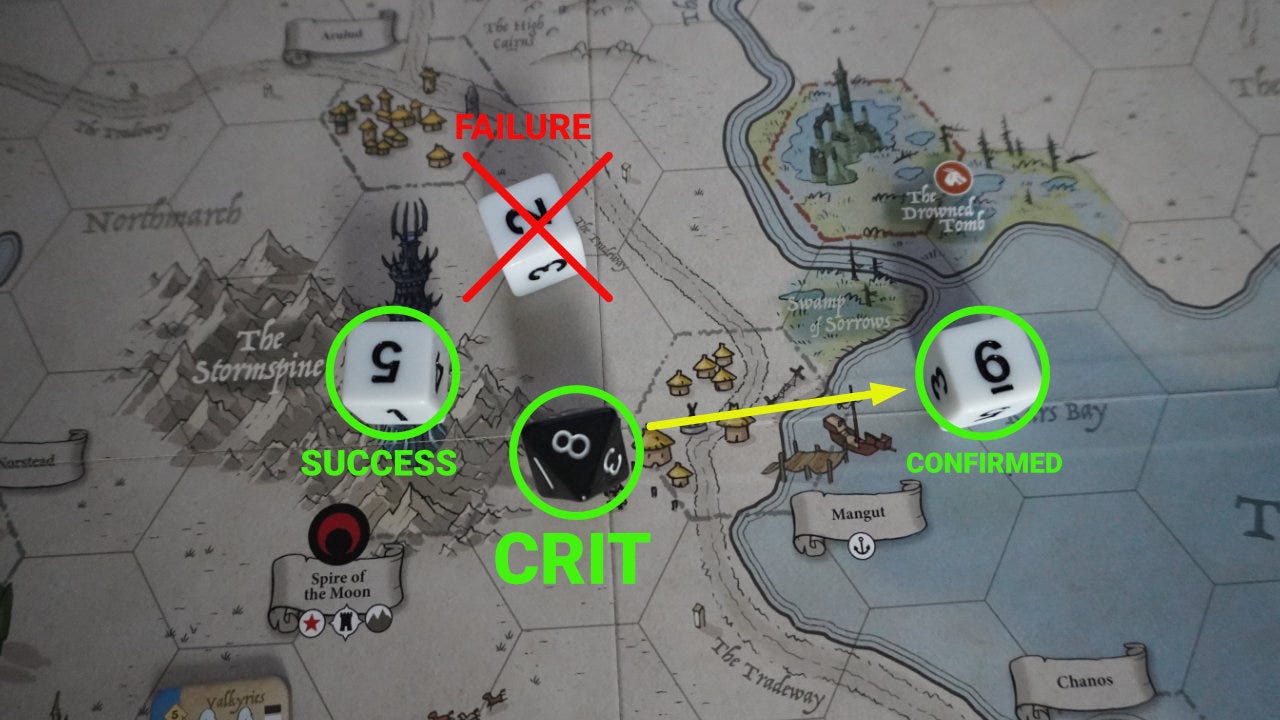
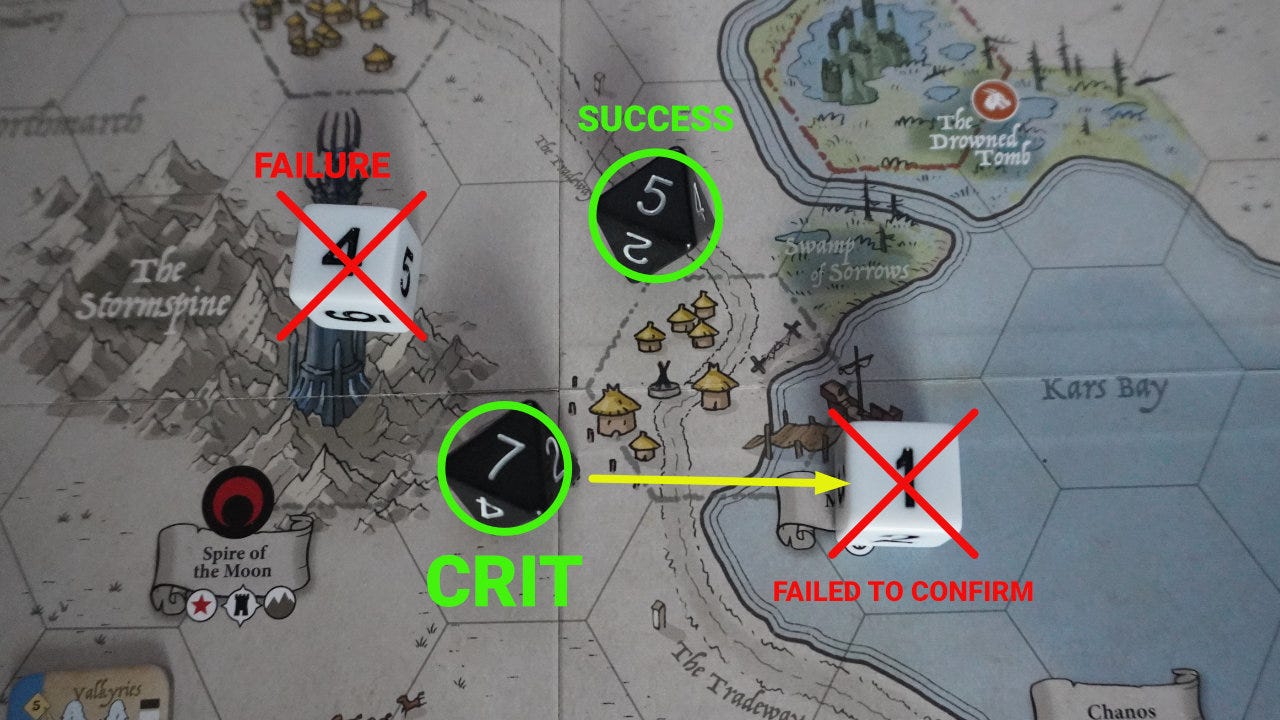


I think it depends. One of the reasons for ‘confirming crits’ that I saw early on which you don’t mention is that it was a technique to allow better, more competent combatants to be more likely to actually land a critical hit (since they were more likely to be successful with the crit confirmation roll). This worked in D&D, but wouldn’t work in the game you mention above where it is a flat chance. I don’t think a flat chance of confirmation adds anything, and is not an approach I’d prefer.
However, some other systems factor in the competence of the attacker in other ways - e.g. Runequest (and other BRP) scores a crit on 1/20th of the attack chance. So 2% or less if you have a 40% attack, 4% if you have an 80% attack and so on. Built in competence effect, so no confirmation.
Another alternative approach (which I used in my Starguild game) was to score a crit if you beat the target number by 10. Again, no confirmation needed, but more competent people (or more vulnerable targets) improve the chance of a crit.
I wonder if confirming crits would be better accepted if presented differently. For example, it sounds like Burning Banners could say something like "for each 7 or 8 rolled, you may roll an additional 1d6. Add any resulting successes to your total." Mechanically it ends up the same but you don't get the feeling of achieving something and having it taken away after.